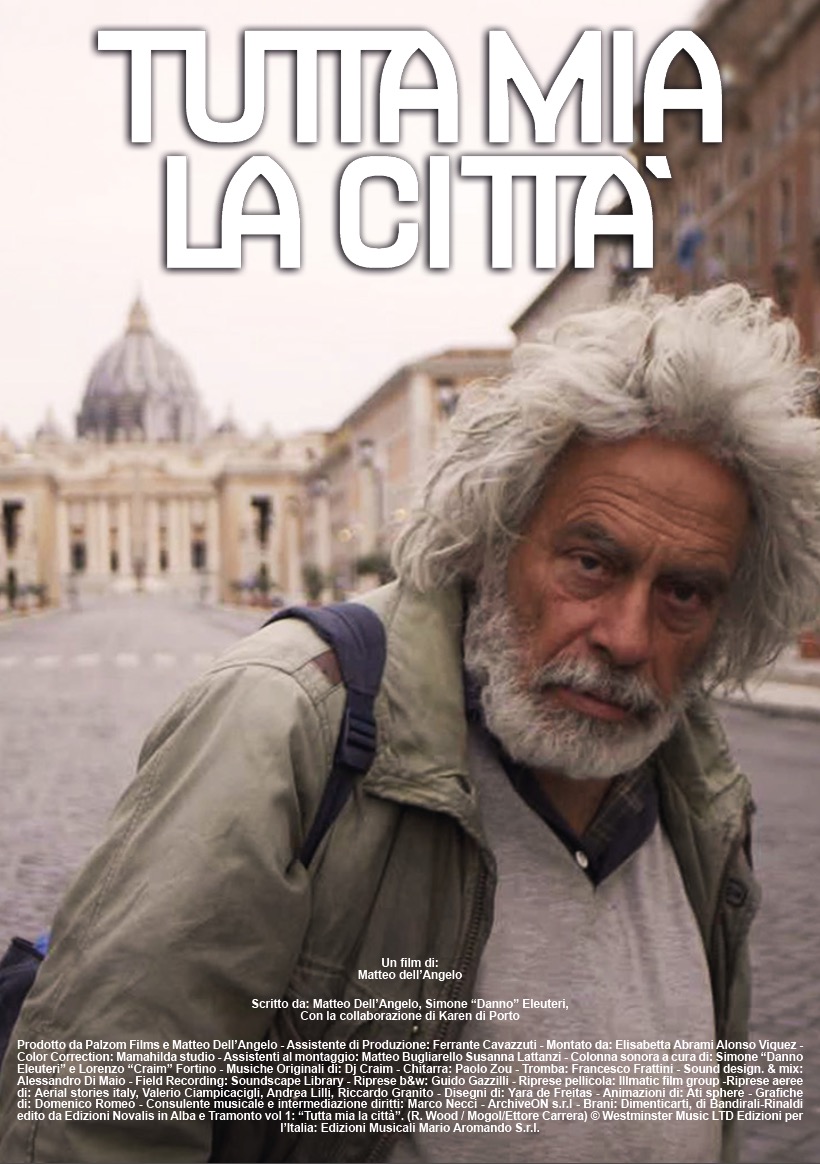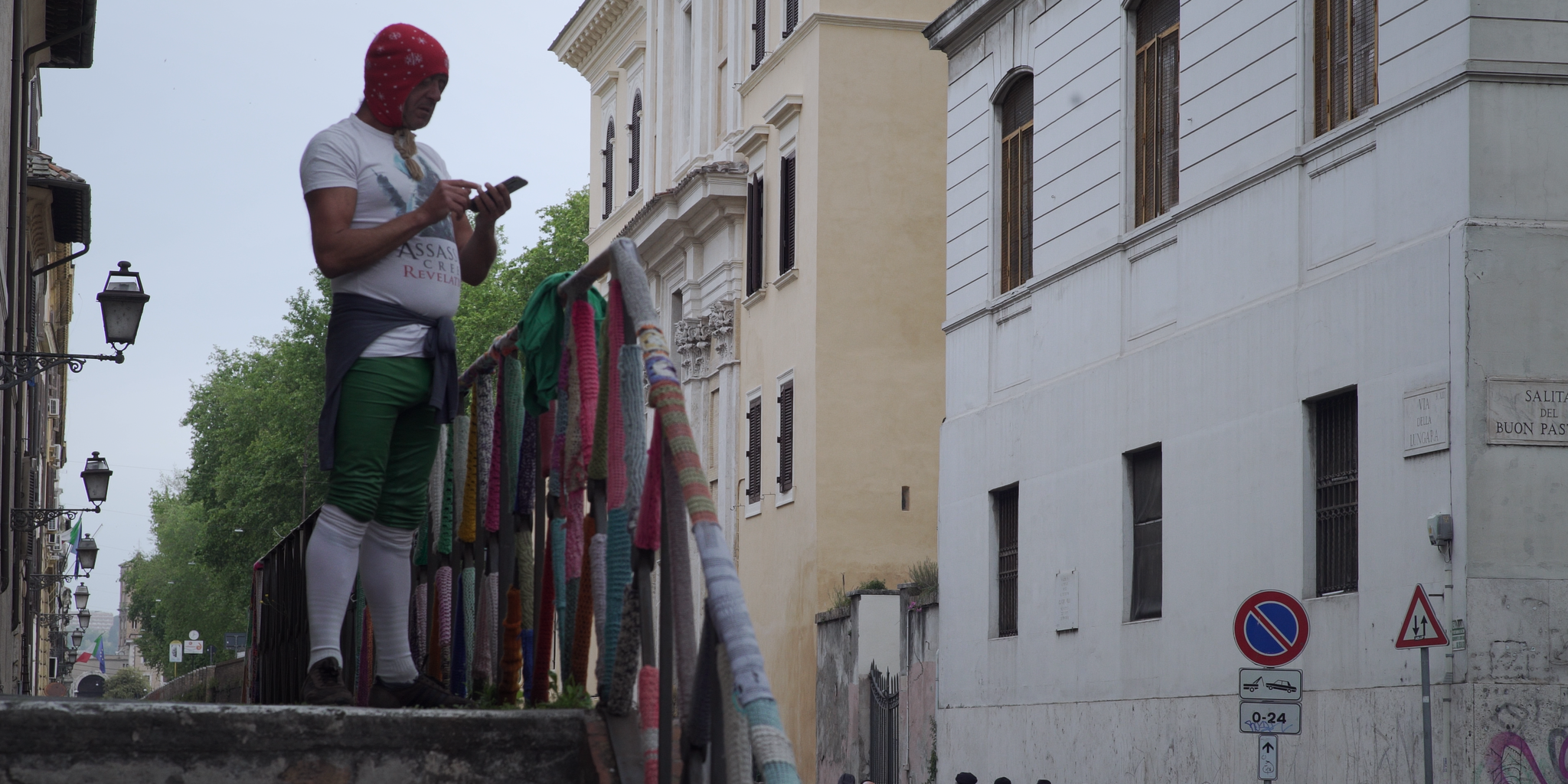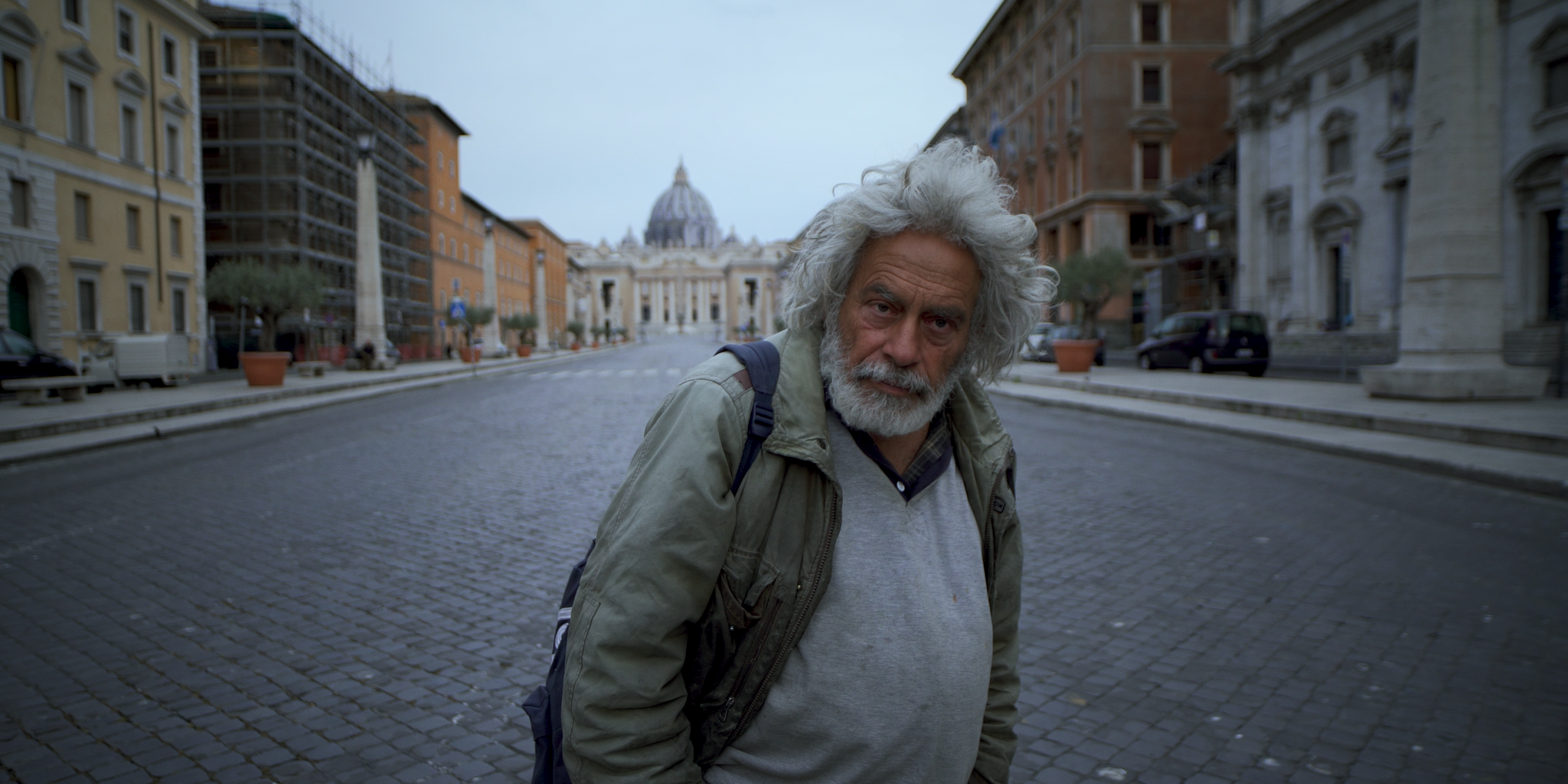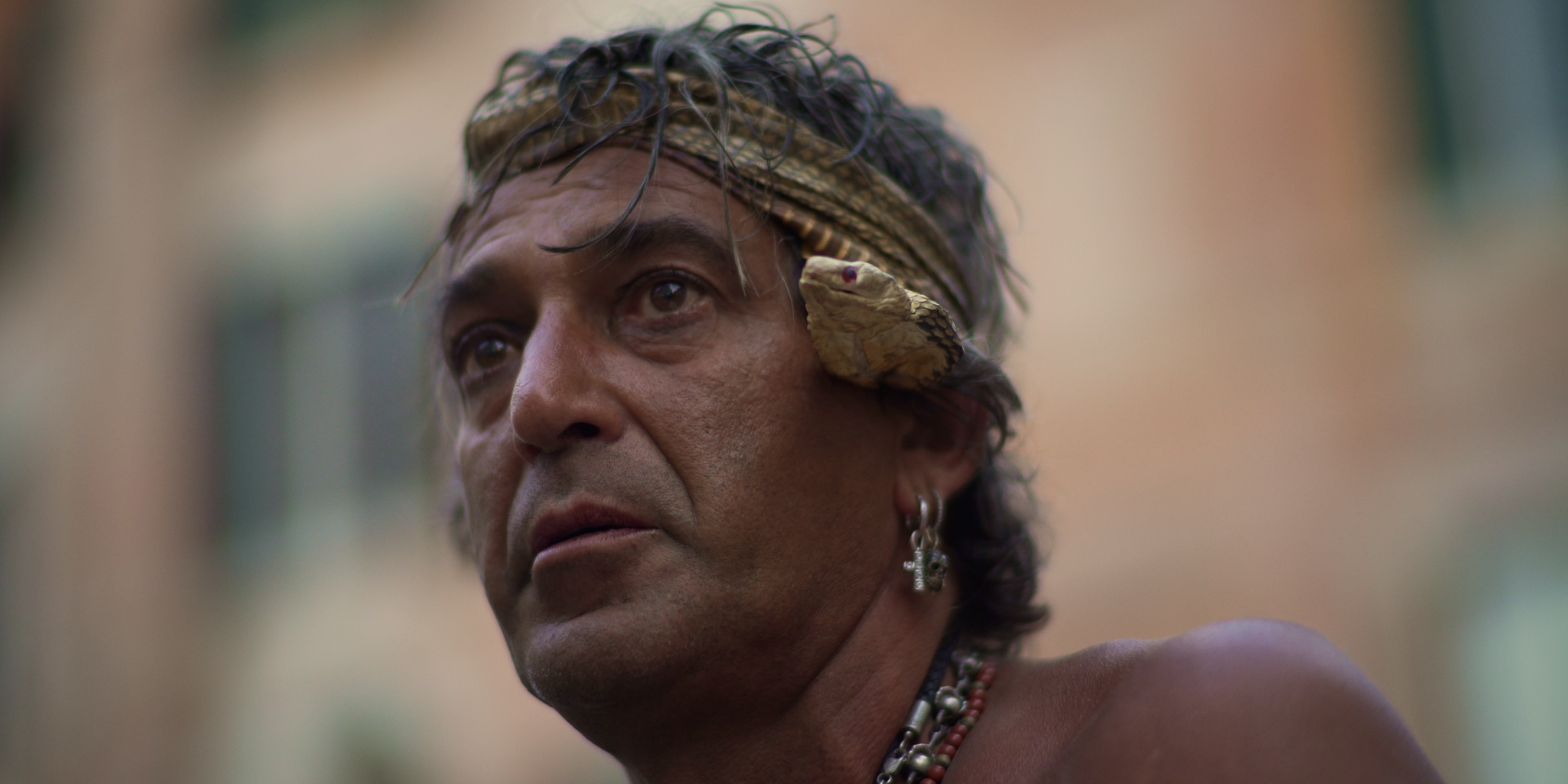The streets of a Rome deserted due to the restrictions of Covid, the now famous lockdown of 2020, become “owned” by the marginalized. Of the last. Invisible people who become visible. A parallel world that was told in the documentary “Tutta mia la città” directed by Matteo Dell'Angelo and written with Danno, pseudonym of Simone Eleuteri (Rome, 27 October 1974), member of Colle der Fomento since 1994.
Very different stories and heterogeneous paths have led the protagonists (13 people) to find themselves in the condition of homelessness, a humanity whose existence runs parallel to ours, always in the light of day even if it is often difficult to see and understand it.
In this documentary, Covid only serves as a backdrop for the story of the lives of these characters with very different stories but who have in common the fact of not having a home and spending their days in a deserted Rome. They all describe their dimension both from an intimate and psychological point of view and from a more concrete point of view linked to daily life. We talked about it with the director of the documentary Matteo Dell'Angelo.
How did the idea of shooting this documentary come about?
“When the pandemic broke out we were shooting an advert in Canada. We were therefore stuck outside Italy for several weeks. When we finally managed to return to Rome, for fear of bringing Covid home, I rented a room in a B&B in Trastevere. Also due to jet lag, I went out early in the morning to get some light without creating any particular problems. One morning I met Karen Di Porto, a Roman director who I knew and with whom I studied in the past. During a walk we saw Ercole, one of the protagonists of the documentary, doing gymnastics. In the afternoon Karen called me and we decided to go filming. I had released another documentary entitled O'Cumpagn Mij, which followed the life of two boxers from Marcianise, a story of redemption. Karen had seen it and said to me: let's go! Let's shoot.”

So, was Hercules the one who, in some way, started it all?
“Yes, Ercole is a homeless man from Labarum, he is very open. He was very nice and disoriented by the absurd circumstance we were experiencing, eager to contact others, he told us his story. He told us that he was at home until he was 40, that he worked at a petrol pump and that he argued with his parents, who – he wanted to clarify – he never harmed. Until one winter day the situation became unbearable and he decided to leave home. He went out in a hurry. Even though he knew Rome well, he told us that he got lost… He wandered around the various neighborhoods of the capital until he arrived, he doesn't know how, in Trastevere where there is Vo.Re.Co, a voluntary association that works with the homeless roof and inside the prison. He goes there every morning to eat and do gymnastics.”
A very interesting character.
“This is a very particular person: he talks about some homeless people, those most linked to alcohol or substances, as “the others”. He, on the other hand, is very keen on being clean, is afraid of violence and only frequents certain places. He always needs to move, he doesn't like staying in closed places.”
Does the documentary want to convey a specific message? If so, which one?
“No, it is a documentary born in a very spontaneous way. We have discovered a great humanity. Then we also saw very bad things… We witnessed a murder that took place on the banks of the Tiber. A boy was killed at the end of a fight between the famous “others” who lived down there.”
Are the perpetrators of the brawl and the murder portrayed in the documentary?
“Yes, for a few seconds you see the group of homeless people while they are right at the river's edge. That scene was filmed before the fight. We were there when it happened. Of course we immediately called the police. 30 policemen came down and arrested him immediately. The incident happened in front of many other witnesses. Many other people were there and filmed everything with their cell phones. The videos came out.”
However, in the documentary the stories of calmer people are told.
“Yes, we decided to talk about the very open and kind people with whom we chose to spend time. Then of course there are also other worlds on the street, such as in Termini or down there on the Tiber, where there are much more violent and aggressive people. “The others” mentioned by Hercules”.


What story struck you the most?
“Each of us has become attached to a story. Many of us worked on this project. The real work was cutting and editing the hours and hours of footage. With Simone Eleuteri (Danno, ed.) we wrote everything and selected the material and found the formula to tell everything.”
Stories of people who had a job, a “normal” life. Then something went wrong.
“Everyone has different reason stories. Chicca, the girl from Guatemala, spoke perfect Italian which she learned working in Italy for many years. She told her story very precisely. You worked for 13 years in some ladies' homes. Then the ladies died and she started living in some squats. When the news came that her mother had died, she was lost. One of your words struck me a lot. She told me: “I had a good fight and I didn't cry or laugh there, but something calmed down in me.” And then? “Then she takes everything away from you. You lose your dignity, your money. You become a monkey.” Because of drugs she lost her children and found herself on the streets. “Now I'm living as if I don't have a heart,” she told us. Now we intend to make a book with the transcripts of these meetings we had for completeness and to give value to their stories. We would like to report everything that the various people we met told us. We would then like to donate the proceeds to Vo.Re.Co”.
In the documentary you talk to homeless Italians and foreigners. Have you noticed any differences in mentality or approach to life on the street?
“We found very different people from each other. With very strong and distinct colors. If I were to look for similarities between them I would only find them in the context in which they live. The city. Rome. All different but living in the same place. Covid has made cities within the city more visible. Their world was more visible in that period.”
Another striking character is “The Professor”, author of philosophical maxims such as “The only reality is the future” and “Is Berlusconi or a 14-year-old boy without a cent richer?”.
“I was intrigued by how these people see life in another way. From securities to affections. From home to food. The professor was very interesting. I think he suffered from a form of Alzheimer's.”


In your opinion, is their way of thinking day by day the result of the condition they find themselves in or, in some cases, does it come from before?
“Let's take three examples: Hercules, Milord and the Professor. They are three different stories. The Professor in the documentary says that there are no positive sides to living on the streets. There we understand that there is a dramatic story of escalation of the disease that led him to break ties with his family and live on the streets. Ercole, on the other hand, tells us that if he had known beforehand about the places he discovered to eat, he would have gone down the street much earlier than when he decided and did it. Finally Milord: he comes from a very poor family in Caserta, his father is in prison, he has used drugs since he was very young, he has always lived on the streets. It has always been like this for him. “Wealth is boring. Better to live like this,” he told us.”
Was it easy to approach these people? Were they wary or did they need to tell their stories?
“Talking to them came very spontaneously. Both because of Covid which he had forced into isolation, and because they wanted to tell their stories. We were welcomed with open arms. When I went to meet them it was like going for a coffee with older friends who have things to tell you. Karen and I were moved by great curiosity. On the whole. Even on how we live, where we eat, wash ourselves and so on.”


Was the choice to use the bus on numerous occasions intentional?
“When the desire to make a film slowly arose, I realized that other people in that period had had the need to document what was happening. Guido Gazzilli, a legend of Roman photography, had gone around by bus and filmed this route in black and white. So I asked him to give me the footage. The bus came in handy as a metaphor for travel.”
Have the 13 protagonists had the opportunity to see the documentary?
“Over time I managed to show it to three of them. Only Hercules saw him in the hall. Bernard, for example, saw it on the PC and headphones on the street. It took us a long time to get him out and in the meantime the city was invaded again, flooded, and many of them disappeared.”
How did Ercole judge your work? Did he like it?
“Ercole came into the room and told me beautiful things. He told me: “Matteo, in the next one we have to do more gymnastics”. He told me that he had only gone to the cinema one other time when he was 14 years old. He didn't remember the title of the film. He came with us. There were 200 people. He didn't want to go on stage, he asked me where he could put his backpack. That was his main concern. He was genuinely excited. When, at the end of the screening, they called us to discuss the film, we spoke up and greeted him by saying that he was there, sitting in the room. At that point the audience gasped in surprise and he stood up and bowed to everyone, smiling. He was sincerely moved. I saw the whole film next to him. He was calm and happy.”
And what was it like for you to see the film alongside him?
“I felt terrible in the previous rounds… I was afraid of offending him in some way. While we were editing the film, the idea was to have a collective screening where some of them would be present, but the days before the event I feared that something might go wrong. When I saw that he enjoyed it I was very happy.”
#Tutta #mia #città #documentary #homeless #Rome #Matteo #Dell39Angelo #discovered #great #humanity